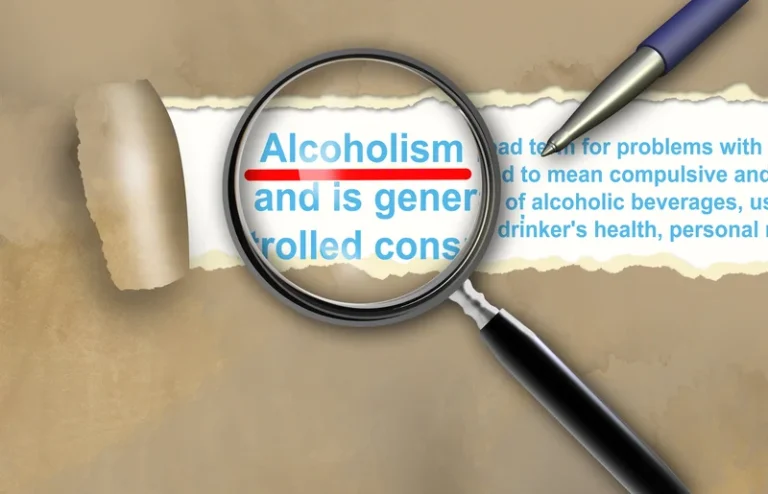
The researchers also discovered that study participants showed a significant increase in their blood platelet activity after ingesting erythritol, raising their risk of blood clot formation. Everyone metabolizes alcohol differently, but generally, it takes about two hours for your body to eliminate the alcohol from a single drink. And no, drinking coffee or taking a cold shower won’t move this process along. Studies have shown that women metabolize alcohol slower than men, resulting in higher blood alcohol levels and more prolonged effects after consuming equivalent amounts of alcohol. This can make women more susceptible to alcohol-related liver damage, heart disease, and breast cancer.

Health Categories to Explore

Once individuals become psychologically addicted, alcohol misuse can become all-consuming. As individuals are often part of social networks, it is easy to understand how alcohol misuse has a ripple effect across a person’s entire network of family, friends, employers, colleagues, and anyone else who depends on the person. Among the former, it had a large sample size and a preregistered analysis plan. This is important given that prior studies are for the most part small and without transparent control of analytical flexibility. The combination of small sample sizes, high analytical flexibility and publication bias has been a perfect storm for generating irreproducible findings [52,53,54,55]. However, despite a larger sample than previous studies, we had insufficient power to conduct otherwise relevant subgroup analyses, for example based on gender or quantitative traits, beyond using them as covariates in the analysis.
Understanding the Link Between Alcohol Use and Depression

Regardless of your relationship status and the impact it might be having on your drinking, it’s important to know that there is support available. To reduce you or your partner’s risk of long-term harm, the UK Chief Medical Officers’ low-risk drinking guidelines recommends drinking no more than 14 units a week. To help put that in perspective, that’s about six 175ml glasses of average strength wine or six pints of average strength beer a week. It’s also a good idea to include several drink-free days, spread evenly throughout the week. Unfortunately, many people are not aware that there are medications available to help treat alcohol use disorder.
Alcohol Misuse and Domestic Violence
- People who have an addiction to alcohol continue to engage in compulsive behaviors despite negative consequences.
- The connection between alcohol misuse and relationship problems is widely-documented.
- This uncertainty is sometimes described as a phenomenon known as “gray area drinking“.
- Additionally, employees who binge drink or drink heavily are prone to absenteeism.
- During therapy, you can learn coping mechanisms that can help you return to life without drinking.
- It can feel like a struggle not to internalize their hurtful actions, but the reality is that people with an alcohol problem may not fully understand the impact that their actions have on friends and family.
Reaching out to support groups, seeking educational resources, and talking to a mental health professional can all be beneficial if you have a loved one who has an alcohol use problem. We also draw attention to some red flags that your drinking may have become unhealthy, and provide next steps for making a change. Just as treatment is available for alcohol misuse, treatment is also available for codependency and has been proven effective. One of the main goals of codependency treatment is to help realign caregivers with their own needs so they can live personally fulfilling lives, rather than being in constant service to a loved one’s addiction. Over time, the caregiver can habituate to this rescuer and provider role and even develop an identity based on it. Further, the caregiver grows accustomed to a relationship with the person misusing alcohol that is primarily based on caregiving.
Marriages and long-term committed partnerships are at higher risk of breaking up when alcohol is a problem in the relationship—especially when one partner has an alcohol misuse problem and the other doesn’t. Whether one partner drinks too much or both partners do, alcohol problems can lead to increased arguments, hurt feelings, and emotional distance in a relationship. The interconnectedness of relationships, emotions, and alcohol use can effects of alcohol on relationships be complicated, but it’s important to understand these connections to maintain healthy relationships with the people in your life, and maintain a healthy relationship with alcohol as well. Nearly a third of U.S. adults have a period of problem drinking at some point during their lives (1). Intercourse is a form of intimacy, and alcohol addiction can negatively impact this aspect of a relationship by disrupting normal body processes.
- There is some limited evidence to suggest that light or moderate patterns of use are adaptive.
- One putative mediator of the relation between alcohol use and marital satisfaction is marital interaction patterns.
- But even low amounts of daily drinking and prolonged and heavy use of alcohol can lead to significant problems for your digestive system.
- Sometimes you will simply have to trust your intuition that something feels wrong.
- While not necessarily a direct path to quitting, being sober curious means you choose to think more consciously about the decision to drink rather than mindlessly consuming alcohol as part of the drinking culture.
4. The effects of alcohol use on marital violence
When Is Drinking a Problem in a Relationship? The Signs.
